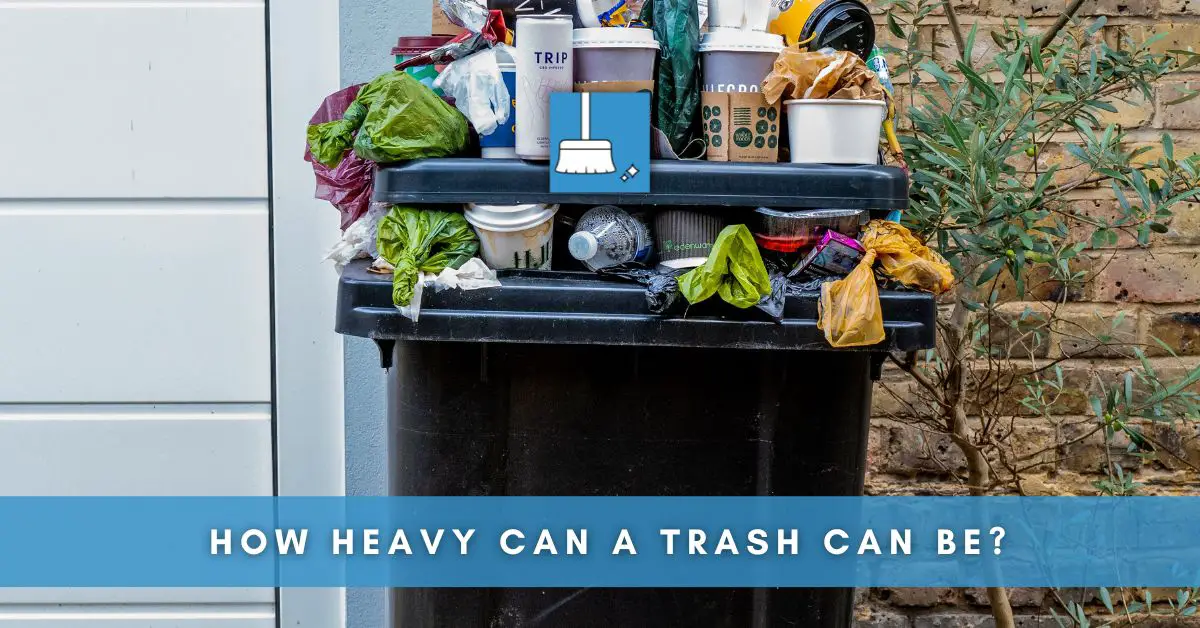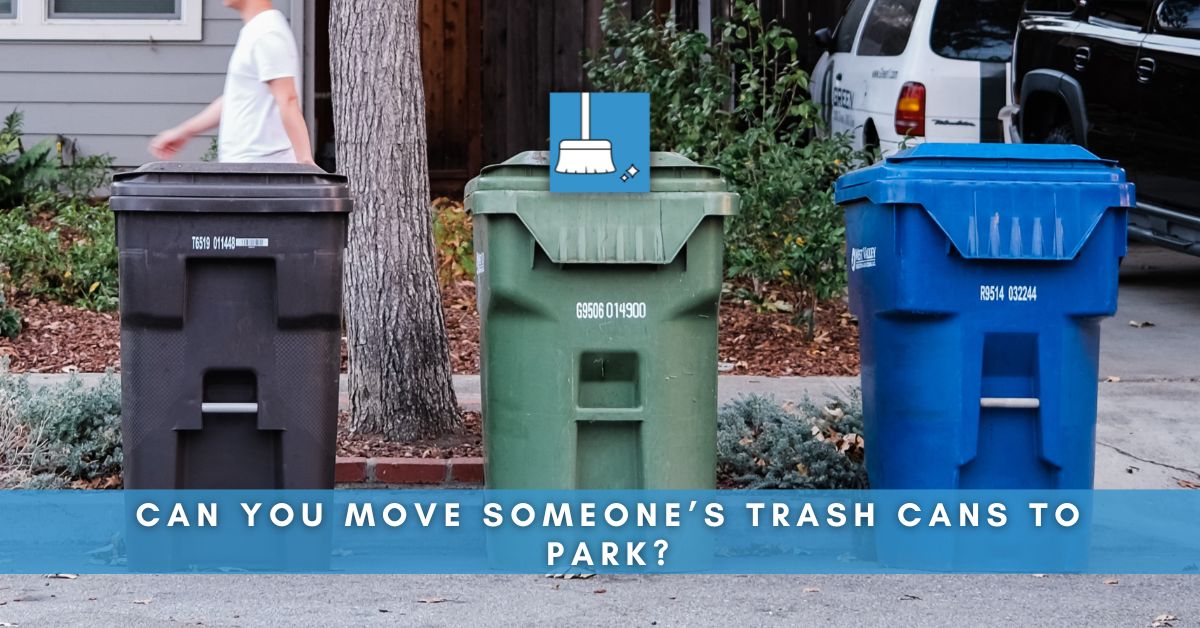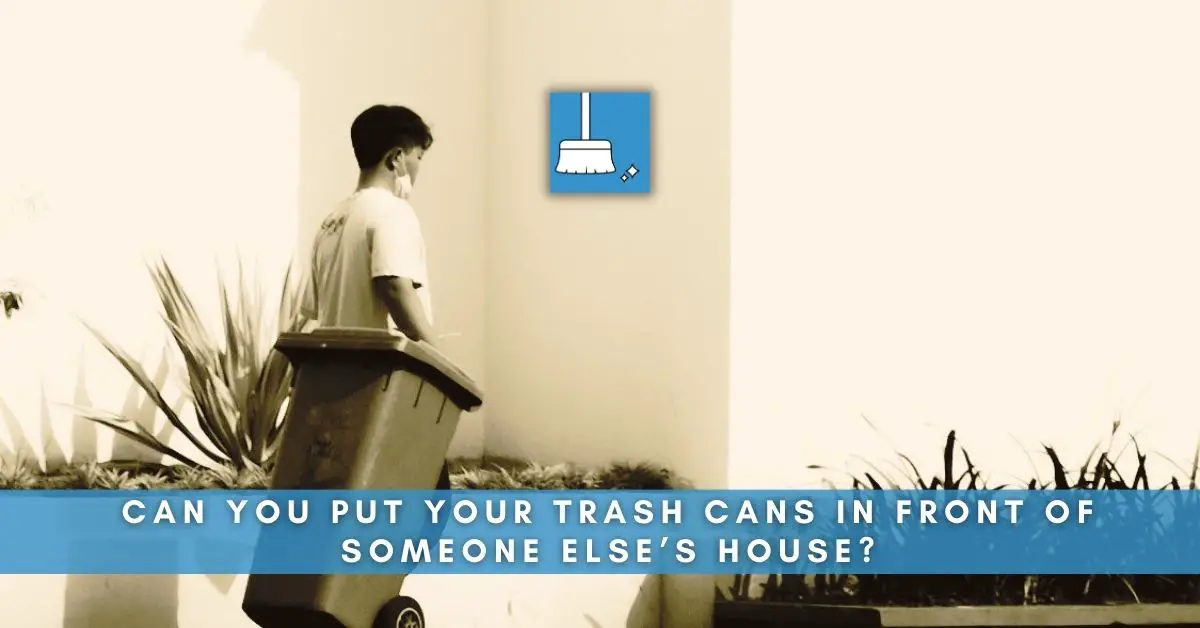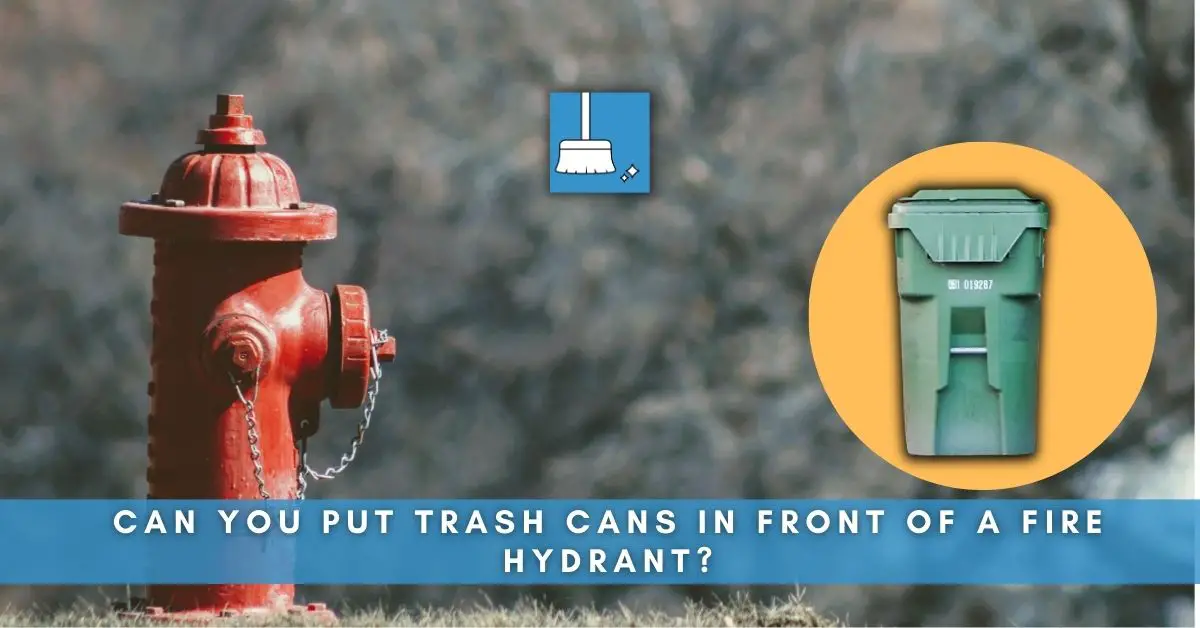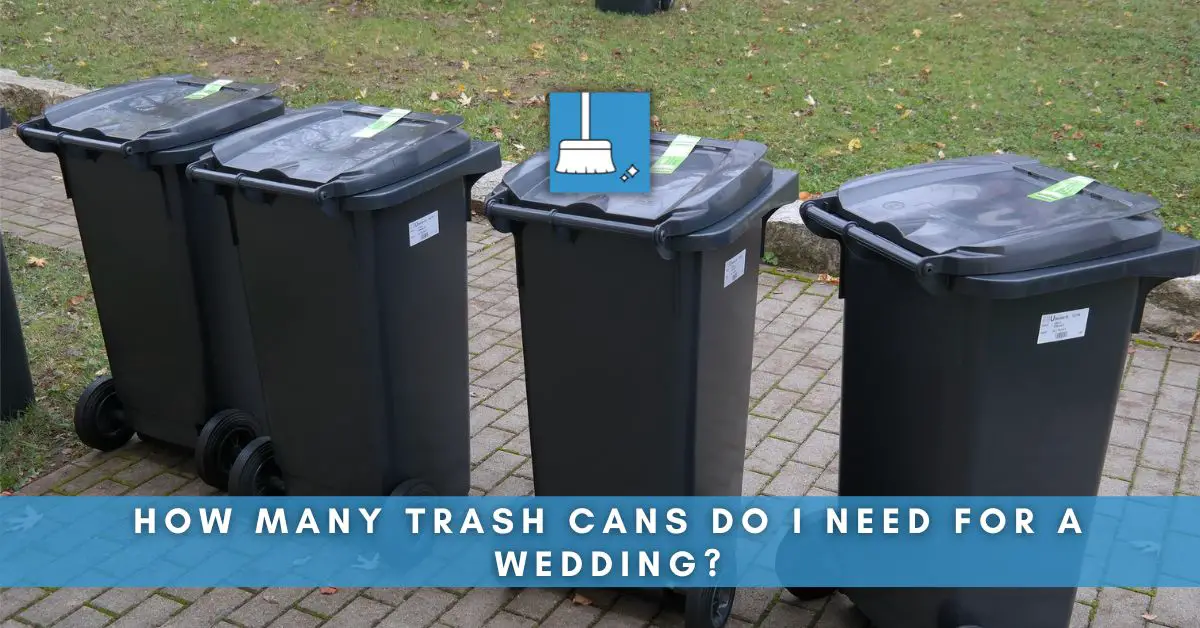We often end up with a mountain of trash after we’ve celebrated an occasion (a birthday or an anniversary). The next morning, you’re bound to get worried if the trash disposal guys will accept all the garbage. Let’s see!
How Heavy Can a Trash Can Be?
It is crucial for households to be aware of the weight restrictions placed on trash bags and carts in order to maintain safety and avoid potential damages to equipment.
Generally, trash bags should not exceed 30 pounds, while carts should have a limit of 200 pounds. These limitations are in place to protect waste management workers from injury, as lifting heavy bags and carts is one of the leading causes of on-the-job accidents.
Additionally, adhering to these restrictions helps prevent damage to the tipping arms on garbage trucks. To ensure compliance with these weight limits, residents can use everyday items as a reference, such as a bag of dog food for a 30-pound limit or a full-sized refrigerator for a 200-pound limit. [1] [2]
Reasons for Weight Limits: Injuries & Equipment Damage
Weight limits on trash cans are implemented for two primary reasons: preventing injuries and protecting equipment.
Firstly, lifting excessively heavy trash bags and carts can pose a significant risk to waste management personnel.
Each year, numerous employees suffer from on-the-job injuries due to handling overweight trash. The weight restrictions aim to minimize such incidents and ensure the well-being of workers.
Secondly, the equipment used for trash collection, such as the truck’s tipping arms, can endure only a certain amount of weight before they suffer damage.
Overloading carts can cause these essential components to break, leading to costly repairs and disruptions in service. [3]
Helpful References for Determining Weight
To help you visualize the weight restrictions and make accurate judgments, consider the following comparisons.
A 30-pound weight limit is roughly the weight of a typical three-year-old child, a full bag of pet food, or a large watermelon.
On the other hand, a 200-pound weight restriction equals the approximate weight of an adult male or a fully loaded large suitcase.
By keeping these objects in mind, you can better gauge whether your trash bags or carts are within the acceptable weight range, ensuring a smooth and safe waste collection process for everyone involved.
Disposing of Yard Waste
Maintaining a clean and clutter-free yard involves properly disposing of grass, leaves, and twigs that accumulate during yard work.
There are several methods to responsibly dispose of yard waste, such as hauling it to designated yard waste collection sites or composting centers offered by many municipalities.
Some cities even provide scheduled curbside pick-up services for organic waste, either as a one-time service or on a regular, weekly or bi-weekly basis.
Alternatively, consider hiring a junk removal service to do the clean-up and disposal for you.
However, note that burning yard waste may not be a viable option due to pollution concerns and local laws that govern this method. Always check your local regulations before choosing a disposal method for your yard waste. [4]
Piling up of Trash Due to Weather-Related Service Delays
Weather conditions can have a significant impact on trash collection services, leading to delays and disruptions in scheduled pickups.
Inclement weather, such as heavy snow, ice, or extreme temperatures, can make it difficult and even dangerous for waste collection drivers and trucks to navigate through neighborhoods. Therefore, there could be sudden accumulation of a lot of waste in your trash cans making you wonder if you are overfilling the cans.
As this is not an everyday thing that happens, you will not be held responsible (and fined) for all this amount of trash. It may happen that the garbage management company do a few more rounds than usual if they are not able to pick it all up in one go.
Companies prioritize the safety of their drivers, customers, and communities they serve, which might result in service interruptions during severe weather events.
Be prepared for potential delays during seasons with frequent storms or hazardous conditions.
Stay informed through your waste management provider’s alerts and updates on their respective websites or social media platforms.
Remember to be patient and understanding, as service providers are doing their best to manage extenuating circumstances and resume regular service as soon as conditions permit. [5]

